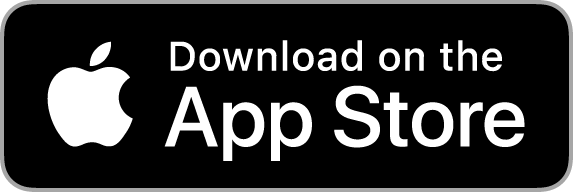In the constantly innovating world of agriculture, growers need to take advantage of every tool at their disposal. Digital record keeping, field monitoring, labor tracking, and so many aspects of farm operations can be enhanced with apps. These applications have the added benefit of being accessible from anywhere with a mobile data connection. Access to accurate information in the field allows growers to harness the power of data to make the best decisions for their operations.
Types of Apps for Farmers
Although the variety of mobile apps for both iOS and Android devices is vast, the apps most relevant to farming operations can be broadly grouped into the following categories.
Weather:
One of the many benefits to farming in the 21st century is the vast amount of meteorological information available online. For any farmer or professional working in agriculture, the benefits afforded by digital technology can be of huge advantage to crop management. Monitoring local and global weather patterns can yield positive results and help farmers to prepare for the worst when extreme weather is likely to hit. Weather tracking apps can provide farmers with key insight into the conditions of their crops, and upcoming risks to production or growing. High quality weather apps range in detail and features, from specialized crop risk analysis to detailed radar maps, temperature alerts, and even earthquake monitoring.
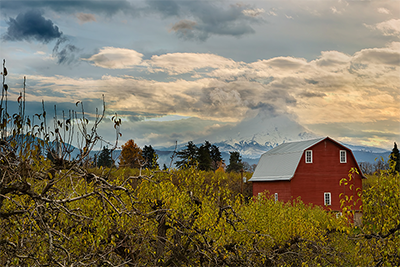

Soil:
In the same vein, soil monitoring apps can provide crucial information to growers about the quality, moisture levels, and soil composition on their farms. Typically paired with on site sensors and rainfall gauges, soil monitoring apps summarize a wide range of data, to provide up to date information on changing soil conditions. Chemical and pH data can also be recorded and monitored to help farmers with decision making around irrigation and fertilizer applications.
Mapping and GPS:
Mapping and GPS apps make it easy for growers to track planting and tilling, and to keep track of where they have sprayed or fertilized. Some farm GPS apps will even integrate with tractors and other equipment to track acres covered, guide employees in real time, or monitor the driving speed.
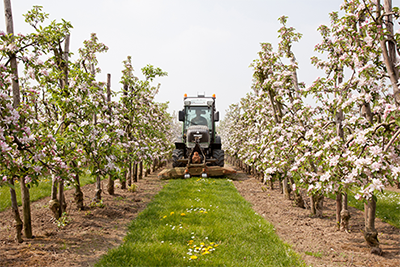

Scouting:
Field scouting apps allow growers to observe, record, and access information on pests and diseases affecting their crops, and provide in field decision support when it comes to treatment. Crop monitoring, pest counts, and pressure metrics can be recorded quickly and efficiently, and with additional details such as maps and GPS data. Some scouting apps even help growers identify pests and diseases using the phone camera, or share information with other growers in their area.
Time Tracking:
Time tracking apps are used to monitor employee hours, calculate payroll, and even to assess worker productivity. Time tracking apps can range from a simple punch-in, punch-out system, to elaborate labor tracking systems that account for breaks, overtime, and even piecework calculations.
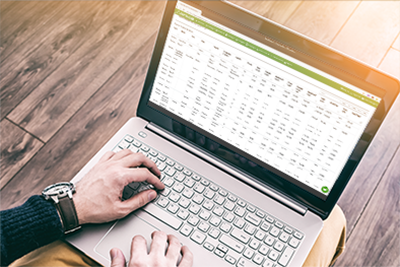
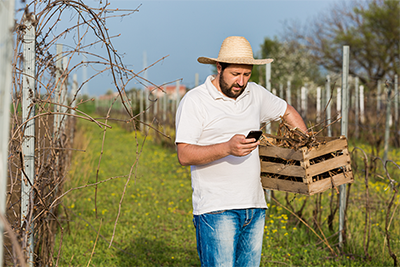
Record Keeping:
Mobile record keeping apps help farmers to maintain and store accurate records of harvests, spray and pesticide applications, planting schedules, and other production practices associated with their crops. Mobile recording apps make tracking activities in the field or orchard faster, simpler, and reduces the risk of errors associated with paper records.
Tank Mix Calculators:
For growers who track their sprays and chemical use, tank mix calculator apps can save a huge amount of time and eliminate the hassle of manual calculations. Apps that allow growers to calculate tank mixes will use sprayer output rates, field sizes, and tank recipes to calculate the number of tanks needed and total amounts per field.
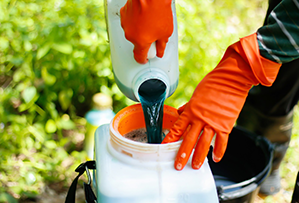
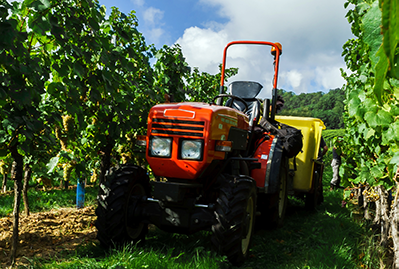
Buying and Selling:
Online marketplace apps are commonplace these days, with sites like kijiji and facebook marketplace dominating the general resale market. For farmers, more specialized apps for buying and selling farm equipment exist to connect them to other professionals buying and selling equipment such as tractors, backhoes, combines, and other agricultural machinery. Some apps will allow users to search by brand, equipment category, price, or location, and may include further categories, such as equipment for rent, large auctions and listings, or even simple replacement parts for sale.
Networking for Farmers:
Social networking for farmers can provide valuable connections for growers who are often dispersed across large rural areas. By connecting growers together, networking apps allow for real time information sharing in an online community, so growers can help each other no matter the distance. In addition to traditional social networking apps, a variety of dating apps for farmers also exist, for growers looking for a partner accustomed to the farming life.

Farm management apps:
Farm management apps are more all inclusive apps, designed to help growers keep accurate records, monitor their teams, keep tabs on their chemical applications, schedule and manage their production events, and make the right decisions for their farms at the right time. Farm management apps may integrate with farm management software platforms to allow for data entry right in the field, to ensure accurate information is available immediately. Comprehensive farm management software can include aspects from any or all of the app types above to create a more complete picture of farming operations.
Why Use Farm Management Apps:
Using a mobile farm management app to enter data can help farmers to eliminate double entry of harvest or spray information, which is typically recorded in the field on paper and then entered into a farm management software at the day’s end. Using farm management software allows growers and farm employees to easily record and view their costs of production, from the initial planting to field work, spraying, crews, harvesting, packing, and shipping. With detailed farm record keeping, growers can make informed decisions that increase efficiency and improve profitability.
Keeping up to date records using farm management software can be hugely beneficial to growers throughout the year, but is especially important during auditing season.
Using a cloud based record keeping software means that accessing, and updating, your records can be done remotely, and shared with other members of your team from anywhere. Mobile support means growers can spend less time in their offices and more time in their fields and orchards. If a team member in the back forty inputs information about spray records, crop health, or orchard management, all employees with access have that data at their fingertips instantly. Cloud based records also eliminate the headache of storing, sorting, and retrieving physical records. This frees up office space and makes surprise audits and record requests less daunting.
Conclusion:
There are a huge variety of apps to help make farm management more effective and efficient. The successful farmer of the modern era will make use of a wide variety of record keeping, information, agricultural apps, and management tools to make the most of their time. It can be daunting to decide which of the many options to use and to compile all the data from these separate apps. Croptracker combines many of these record keeping, time tracking and mapping features to create a one stop app for managing your operation, from planting to shipping, and it's available on desktop and mobile devices!
Interested in learning more about Croptracker? Learn more about our Farm Management Software, or book a demonstration to schedule a meeting with our product experts.
And as always, if you're ever stuck, never hesitate to e-mail us at support@croptracker.com or Live Chat with us by clicking the green speech bubble ![]() in your bottom right-hand corner. We're always happy to help, so Croptracker can make your farm more efficient, safer, and more profitable!
in your bottom right-hand corner. We're always happy to help, so Croptracker can make your farm more efficient, safer, and more profitable!

